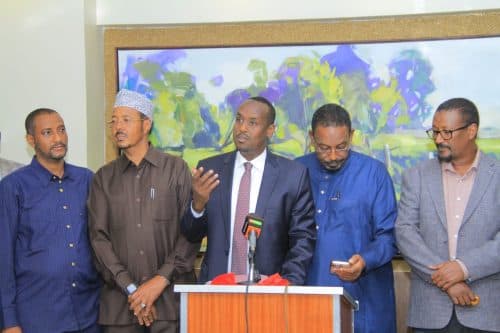We're loading the full news article for you. This includes the article content, images, author information, and related articles.
Nominated MP Umulkher Harun has strongly criticised the ongoing discrimination faced by Kenyans of Somali origin, asserting they should not be compelled to prove their national identity. Her remarks highlight deep-seated issues of marginalisation and identity within Kenya.

Nominated Member of Parliament (MP) Umulkher Harun on Wednesday, October 1, 2025, condemned the discrimination targeting residents from Kenya's North-Eastern regions, particularly those of Somali origin. Speaking to a local TV station, MP Harun emphasised that Kenyan-Somalis are not obligated to prove their identity to anyone.
She drew a parallel with the Maasai community, who reside in both Kenya and Tanzania, noting that they are rarely subjected to questions about their nationality. “We come from a community that has been sidelined for a long time. We have communities that also come from the borders. Do you ever hear a Maasai saying, ‘I am a Kenyan Maasai’? They are found in Kenya and Tanzania, just as the Somalis are found in Djibouti and Ethiopia. Why do we have to identify ourselves as Kenyan Somalis? As a Kenyan, I don’t have to prove my identity to anybody,” Harun stated.
The Kenyan-Somali community has historically faced significant challenges regarding their identity and belonging within Kenya. Decades of institutional discrimination, economic neglect, and security operations have contributed to a sense of marginalisation. This discrimination is historically linked to Kenya's involvement in the Shifta war in the 1960s, which aimed to annex Kenya's northeastern region to 'Greater Somalia'. During this period, and in subsequent years, Kenyan Somalis were often conflated with Somali refugees and targeted in security crackdowns.
In the past, Kenyan Somalis have been required to carry special identification cards to prove their citizenship, a requirement not imposed on other ethnic groups. This practice has contributed to difficulties in obtaining identification papers and has fueled societal and official discrimination.
While Kenya's constitution guarantees equal rights to all citizens, the practical application of these rights for Kenyan-Somalis has been inconsistent. The government has, at various times, implemented policies that have been perceived as discriminatory, particularly in the context of national security operations. For instance, operations like 'Usalama Watch' have been criticised for disproportionately targeting individuals of Somali descent.
Continued stigmatisation and discrimination risk further alienating the Kenyan-Somali community, potentially undermining national cohesion and trust in state institutions. It could also exacerbate existing socio-economic disparities and hinder efforts towards inclusive development in the North-Eastern regions.
The specific policy changes or government responses anticipated following MP Harun's condemnation remain unclear. The long-term impact of such advocacy on public perception and policy implementation is yet to be seen.
Observe potential parliamentary debates or government statements addressing MP Harun's concerns. Monitor any shifts in public discourse or policy implementation regarding identity verification and anti-discrimination measures for the Kenyan-Somali community.
Discussions around national identity, minority rights, and the integration of border communities within Kenya.
Keep the conversation in one place—threads here stay linked to the story and in the forums.
Sign in to start a discussion
Start a conversation about this story and keep it linked here.
Other hot threads
E-sports and Gaming Community in Kenya
Active 9 months ago
The Role of Technology in Modern Agriculture (AgriTech)
Active 9 months ago
Popular Recreational Activities Across Counties
Active 9 months ago
Investing in Youth Sports Development Programs
Active 9 months ago